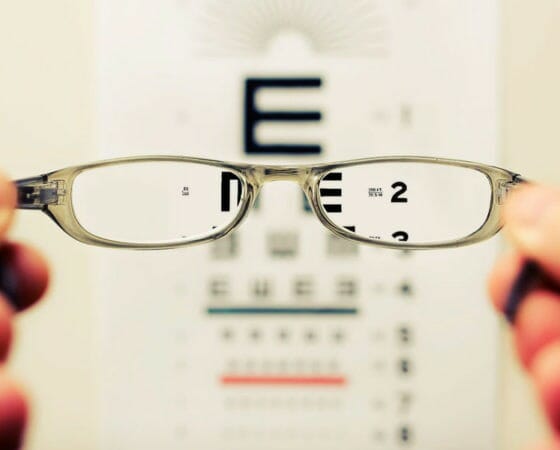Has Anything Like This Ever Happened to Your Eyes?
Most of us don’t really think about our eyes very much, as long as we can see clearly and nothing is irritating them. When something does go wrong with our eyes, however, it can quickly send us into a panic, especially if we don’t recognize the symptoms affecting our eyes or our vision.
There are actually some rare and unusual eye conditions out there that probably won’t affect you, but you should know about just in case you happen to notice any of these symptoms. Courtesy of the National Eye Institute, here are 10 interesting eye conditions to know about.
Anophthalmia
If you have anophthalmia, you would likely know it, as anophthalmia is a birth defect characterized by the absence of one or both eyes. While there is no working substitute for an eye yet, there are prosthetics that can give the individual with this condition the appearance of two eyes and help to maintain their face structure.
Microphthalmia
Microphthalmia is a similar birth defect to anophthalmia, except in this case, the eyes are abnormally small, rather than missing entirely. A microphthalmic eye can be capped for cosmetic purposes.
Bietti’s Crystalline Dystrophy
An inherited disease, BCD is characterized by crystals in the cornea and yellow shiny deposits on the retina. There is progressive atrophy of the retina and other parts of the eye, leading to night blindness and a constricted visual field.
BCD is caused by a defect in a gene in chromosome #4 and is more common among people with Asian ancestry. It is quite rare because both parents must pass on a copy of the gene for a child to have the disorder.
Bechet’s Disease
This is an autoimmune disease whose symptoms are not limited to the eye, but it causes blood vessel inflammation that can include eye inflammation, leading to blurred vision, redness, and eye pain. The cause is unknown, there is no known cure, and severity varies from person to person.
Idiopathic Intracranial Hypertension
This is a condition characterized by pressure around the brain and spinal chord, resulting in headaches, vision loss, blind spots, double vision, and other ailments. There are a variety of potential causes, including excessive Vitamin A intake or a bad reaction to tetracycline.
Idiopathic Intracranial Hypertension can also be caused by a brain tumor, and the fact that its symptoms mimic brain tumor symptoms means IIH can sometimes be misdiagnosed as a brain tumor. The disease is related to weight and weight loss can help with the condition, as well as stopping any medications or supplements that may have brought on the condition.
Retinitis Pigmentosa
The diagnosis of RP represents a group of genetic disorders that interfere with the action of the photoreceptors in the retina. It can lead to the death of rods in the eye, which then causes night blindness and a constricted visual field. Eventually, cones die as well, leading to tunnel vision.
RP is not curable, although there are ways to help the affected person compensate for their vision loss. One study found that 15,000 international units of Vitamin A palmitate a day slowed down the disease progression in adults.
Retinoblastoma
Retinoblastoma is an eye cancer that occurs in children and forms in the retina. It should be treated immediately, with the course of treatment similar to other forms of cancer.
Stargardt Disease
An inherited retina disorder, this disease can cause vision loss at a young age. While there is no cure, this disease usually does not render people blind, although it can reduce visual acuity to a considerable degree.
Usher Syndrome
Usher Syndrome is an inherited disorder that causes both hearing loss and vision loss, specifically Retinitis Pigmentosa (see above).
Uveal Coloboma
Coloboma is a blanket term for a rare condition where part of the eye is missing. There are eyelid colobomas, lens colobomas, macula colobomas, optic colobomas, and uveal colobomas. In a uveal coloboma, the inferior portion of the optic nerve or the entire optic disc is missing. A uveal coloboma will mean at least some level of vision loss in the affected eye and there is no treatment at this time.
Understanding the Importance of Regular Eye Exams
The best way to protect yourself from any threats to your vision is with regular eye exams. If you are in the Portland area, contact Beaumont Vision for a thorough exam from a caring professional in a comfortable environment.

